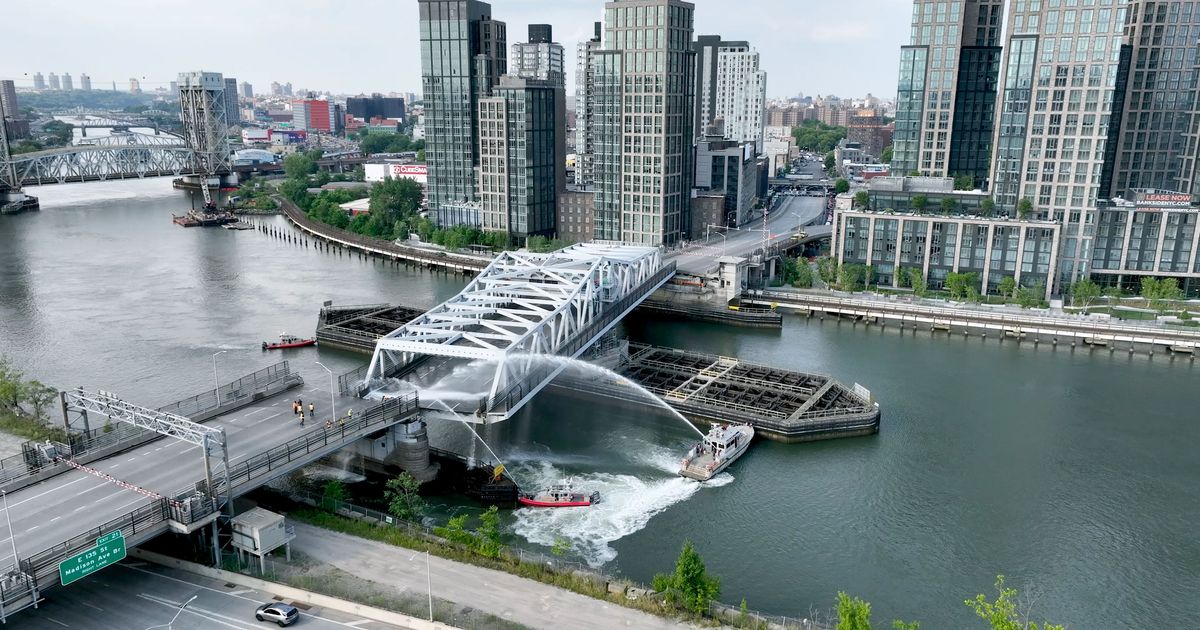Infra
Why the Third Avenue Bridge Got Stuck

The FDNY fireboats Bravest and William M. Feehan douse the Third Avenue Bridge to get it closed on July 8.
Photo: Lokman Vural Elibol/Anadolu Agency
The Third Avenue Bridge, the span that swings open and shut over the Harlem River near 128th Street, carries about 50,000 vehicles a day. On July 8, as the temperature reached 95 degrees, it didn’t. The bridge opened to let a barge through, its steel expanded in the heat, and at 2:46 p.m., it got stuck as the operators tried to close it. It took four hours and a pair of fireboats spraying cooling water on the trusses before it could pivot back to its normal position.
Two familiar phrases inevitably leapt to mind: global warming and aging infrastructure. In this case, though, neither is quite to blame. Yes, we have more hot days than we used to, but 95 in July is hardly unheard of. And the Third Avenue Bridge is not a rusty old mess: It was replaced in the early aughts, along with several other rotted-out bridges over the Harlem River, and is in fine shape. Instead, what we saw here is a built-in problem that swing bridges (as these pivoting structures are called) all occasionally experience when they warm up and expand. There are countless stuck-bridge stories like this one in newspaper archives, from New York and elsewhere, often culminating in a visit from the fireboats. On a sweltering day in June 1936, not one but three spans over the Harlem River got stuck open at once, causing a spectacular traffic tie-up.
So why did this feel so striking, with multiple news helicopters circling overhead? Probably because it has become so rare. In the days when the Harlem River was lined with smokestack industry, its bridges swung open and closed constantly, six or seven times a day, to let ships through. Hot-day jam-ups were comparatively common. Today, far fewer vessels use the river, and most of those (the Circle Line’s tour boats, for example) are small enough to pass beneath the bridge. The Third Avenue Bridge now opens about four times a year. This view of our grim climate future was also a visit to the coal-fired past that helped create it.










